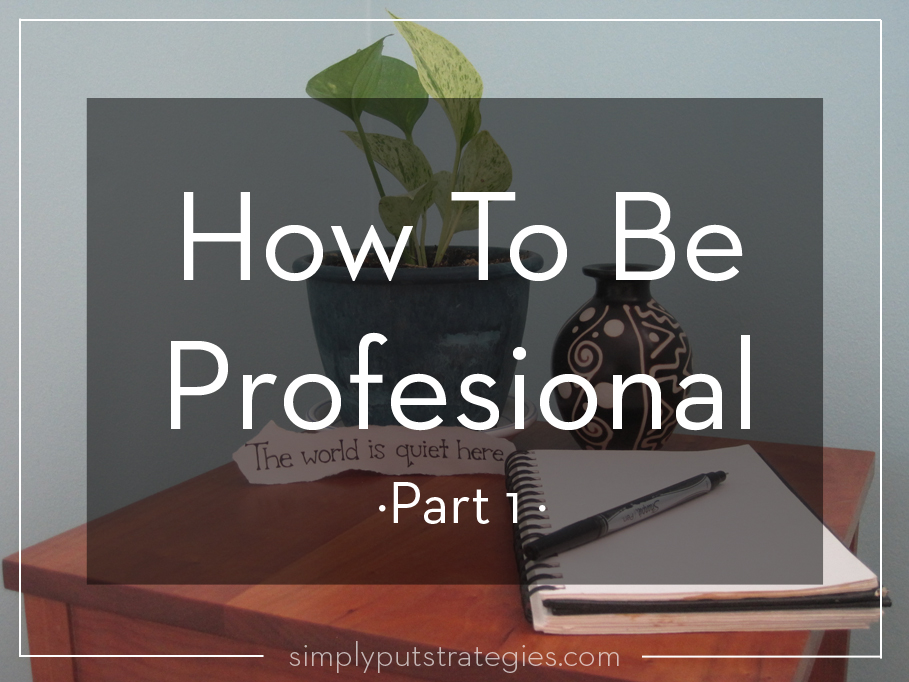
When I started working, I thought that being professional would be easy. How hard could it be? I was surprised by how many silent expectations and unspoken strategies there ae in the workplace. Whether starting your first job, a new job, or striking out on your own, being professional is an ongoing project that takes time and attention.
Not sure where to start? Consider the following:
Daily Check-in:*
Touch base with yourself (or a colleague, or your supervisor) on these three points: What did you accomplish today? What’s your biggest priority tomorrow? Do you have any roadblocks to getting things done? These questions provide a structure for monitoring your work and priorities, assessing your progress, and indicating if you need guidance or support to accomplish a task.
Tailor Your Communication:
People communicate differently, and it’s important to have a feel for how your supervisor or clients like to communicate. Do they want regular, detailed updates on your projects? Do they prefer biweekly meetings? Ask how they like it, rather than waiting to be given instructions. And if you’re only checking in every other week, make sure to keep a list of ongoing projects so you can provide status updates at any time. Which brings us to….
Capture Tasks:
There are a million things coming at you from all sides. Try to have one place (hello, David Allen) for all tasks to be captured and organized. For years I kept track of my work in a notebook, using a system of columns, colors, and symbols for organization. Eventually I replaced paper with a digital system so I could keyword search and schedule tasks in advance. Sometimes things slip, but a professional has a system to capture all tasks so that when asked, she can report on the status of everything from big projects to small to-do’s.
Distinguish Between Urgency and Importance:
At any given time you have a lot to do, but not everything is important and urgent. It’s easy to get overwhelmed by the quantity of work and forget to prioritize time-sensitive tasks or plan out long, multi-step ones. Rather than doing small things so you can cross them off, or working long hours on a project that isn’t due for a month, a professional has a hierarchy of important and urgent tasks and does those first. If she’s unsure, she finds out.
Take Notes:*
Use a notebook, Google doc, or similar to record any questions, suggestions, or concerns you have about work. Ideally, this is something you can review with your supervisor or a colleague. Not only does this show that you are engaged in the workplace, it also shows that you’re looking for ways to improve yourself and and the company.
Structure Your Time:
Some workdays I dive in with no plan, haphazardly doing various tasks, checking email, and distracting myself by texting. No bueno. My most productive days come from planning: dividing my time into 1-2 hour chunks for specific tasks; batching tasks like phone calls, emails, or social media scheduling; structuring breaks to refresh my mind and body. When are you most productive – is it morning? Use that time to work on creative projects and reserve email and phone meetings for after lunch. Do rote tasks while listening to TED Talks or music so your mind can take a break.
What have you learned about being professional? Add to the list!
*A fellow Bullicorn had the opportunity to mentor an intern in her company, and asked the community how to be helpful. Some of these suggestions come from that conversation.
(photo by Eva Jannotta)






